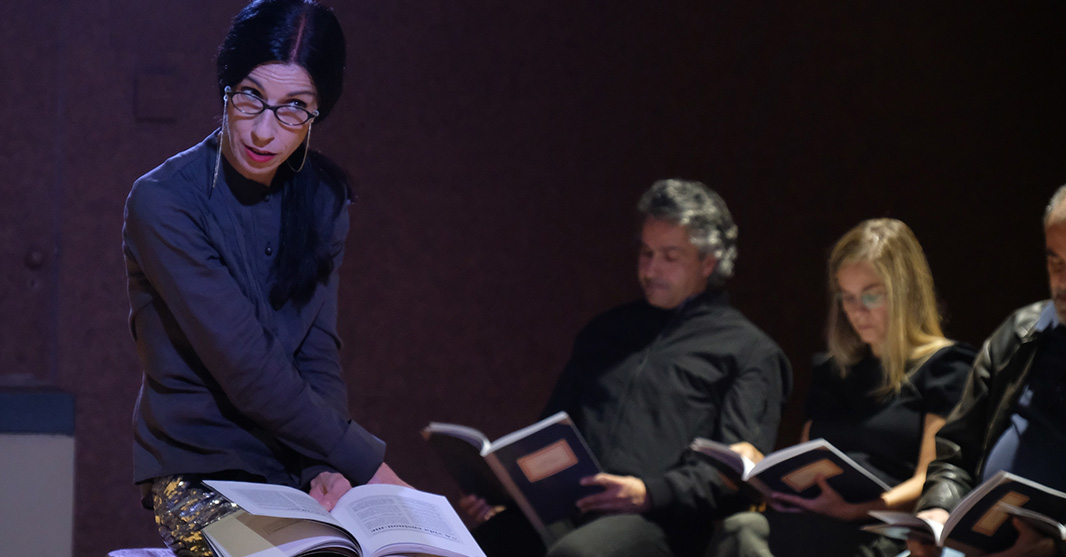A performance in the form of reading aloud
Published at — 25 June 2025
The possibilities of the written word, reading aloud and graphic design as tools for expressive performance are the starting point for the show ‘Como desenhar uma filha nua’, by Jorge Palinhos and the Visões Úteis company, which will be performed on 26 June at 9.30pm at the Aveirense Theatre.
For this new creation, Jorge Palinhos says he was inspired by book clubs and the professional act of reading reports in groups, trying to recover this practice and understand its potential for the written word to move a group of people. In this way, he takes the written word in its graphic context, where the page becomes the stage for action, in conjunction with the stage of the meeting where the reading takes place.
In this way, the project is presented as a common reading, directed by an interpreter, who leads the spectators/readers through a graphic and fictional work created for this purpose, so that the group and reading dynamics interact to generate complicity and emotion.
This object book centres on the biography of an artist, in order to explore a linear vision of human life that can unveil its multidimensional complexity. It thus addresses the delicate issue between art and life, and the ambiguous, controversial way in which an artist's biographical data can inspire, complexify or tarnish their artistic work.
For this new creation, Jorge Palinhos says he was inspired by book clubs and the professional act of reading reports in groups, trying to recover this practice and understand its potential for the written word to move a group of people. In this way, he takes the written word in its graphic context, where the page becomes the stage for action, in conjunction with the stage of the meeting where the reading takes place.
In this way, the project is presented as a common reading, directed by an interpreter, who leads the spectators/readers through a graphic and fictional work created for this purpose, so that the group and reading dynamics interact to generate complicity and emotion.
This object book centres on the biography of an artist, in order to explore a linear vision of human life that can unveil its multidimensional complexity. It thus addresses the delicate issue between art and life, and the ambiguous, controversial way in which an artist's biographical data can inspire, complexify or tarnish their artistic work.


